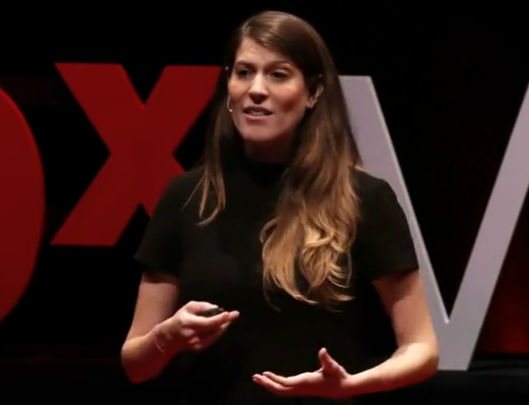And the comment section for that video became sort of like a self-help section,
并且那個視頻的評論區變得有點像一個勵志互助區,
where people could talk about their tonsil stone experiences and, like, tips and tricks for getting rid of them.
人們可以談論他們扁桃體結石的經歷,比如擺脫它們的方法和策略。
And I think it became this great way for people to talk about something that they'd never felt comfortable taking about publicly.
我想這已經成了人們敞開心扉直面問題的絕佳途徑。
And that is wonderful when it's about something as goofy as tonsil stones,
能討論諸如扁桃體結石一類惡心的東西,確實大快人心,
but it's a little sad when a video can have an effect like that when it's about something as common as periods.
然而對于一個有相同影響力的視頻,例如月經一類的平常事物,情況就不那么樂觀了。
Last February, I released a video on menstruation,
去年二月,我發布了一個有關月經的視頻,
and to this day, I am still getting messages from people around the globe who are asking me about their periods.
一直到今天,我仍會收到來自全世界人們關于自己月經問題的留言。

There are a lot of young people -- and some not-so-young people -- out there,
許多年輕人--還包括年紀稍大一些的人,
who are worried that what's happening to their bodies is somehow not normal.
擔心她們身體出現了一些異常。
And, of course, I always tell them that I am not a medical professional,
當然,我總告訴她們我不是醫學專家,
and that, if possible, they should talk to a doctor.
如果可能的話,她們應該去咨詢醫生。
But the truth of the matter is that everyone should feel comfortable talking to a doctor about their own bodies.
但事實上:所有人應該很自然地與醫生談論她們自己的身體。
And that's why I think it's really important for us to start this dialogue about gross stuff from a pretty early age,
這也是為什么我覺得從年輕時開始直面惡心事物對我們來說很重要,
so we can let our kids know that it's alright to have agency over your own body and over your own health.
這樣就可以讓我們的孩子們懂得:應該有人關心你們的身體,對你們的健康負責。











